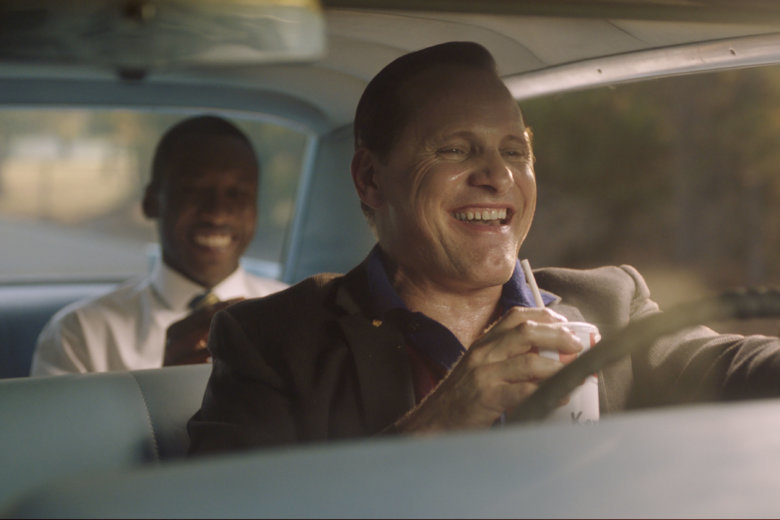By Laurie Coker
Rating: B+
Based on a true story of the most unlikely of friendships, The Green Book pairs one refined and sensible musical artist with an abrasive and sloppy Bronx-born scoundrel. While it totters between shallow and overtly preach, The Green Book starring Viggo Mortensen and Mahershala Ali make a journey across the Jim Crow South in 1961 a pleasure. The picturesque backdrop of the Southern landscape highlights the harshness of racial discrimination. Director Peter Farlley and co-screenwriters Nick Vallelonga and Brian Currie, however, play it safe and stay keenly focused on the friendship between Don and Tony and not the cultural tension.
Ali plays Dr. Don Shirley – a black American of Jamaican descent and the gifted pianist and celebrated leader of the Don Shirley Trio. When the group books gigs to play in the South, Shirley hires Frank Anthony Vallelonga (Mortensen), better known as Tony Lip to act as his personal driver. Vallelonga, an Italian-American bouncer from the Bronx smokes like a chimney and eats food that would cause a lesser man a massive coronary. When he’s not stuffing his mouth with literally thousands of calories at a time – fried chicken, whole pizzas, sandwiches, and hotdogs and Tony talks and talks and talks. Mortensen is fantastic presenting a huge, bombastic, utterly annoying and remarkably engaging personality. Ali charms and even as his character warms to Tony, we see the pain behind the eyes of a man trapped between two worlds.
The titular The Green Book refers to a publication called The Negro Motorist Green-Book written for African-American motorists from 1936 to 1966. Many times, Don and Tony stay at the same hotels, but once in Jim Crow territory, Don must room in Coloreds only establishments so foul that Tony grimaces and worries for his safety. Don, a bottle a night drinker, requires rescuing on a few occasions. It is these and other poignant moments that turns Tony’s way of thinking around. Both men’s viewpoints of life and cultures change as they experience the world through each other’s eyes.
The Green Book’s stars serve up award-winning performances and Farrelly’s 1960s imagery and realism is perfection. Although delivered light-handedly, the film’s messages resonate in a time when such friendships are as relevant as they were back then. Tony’s real-life son Nick’s hand in the script is noticeable in the lean toward Tony’s aspect of the story. Don’s part is the reason for the story’s conflict and warrants equal if not more attention and the void apparent in the limited development of his backstory. Still, the leads make up for what the film lacks in substance, and the journey pleases, earning The Green Book a B+.
